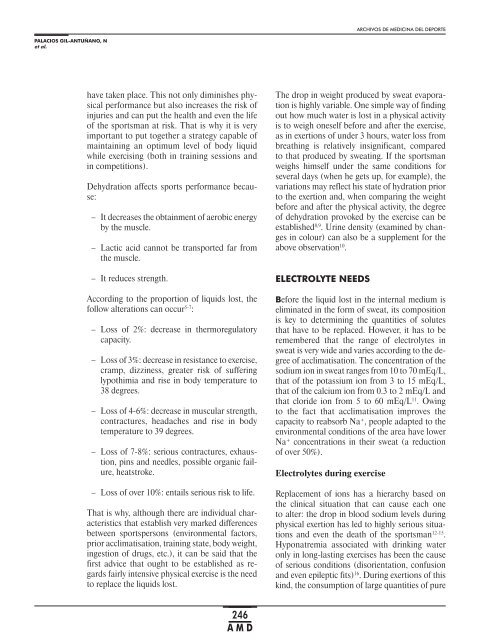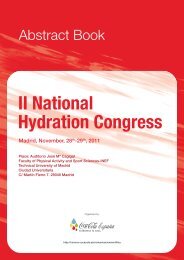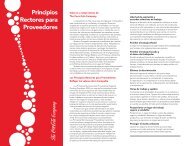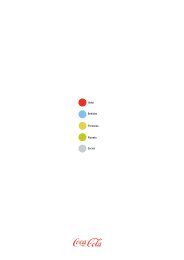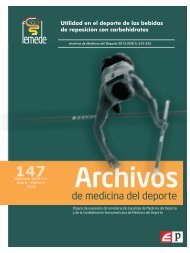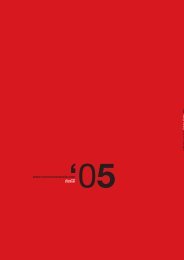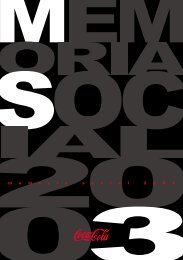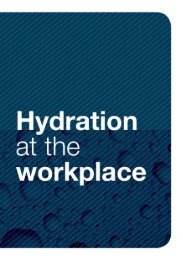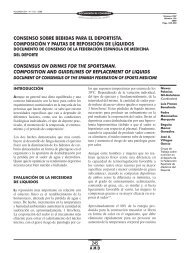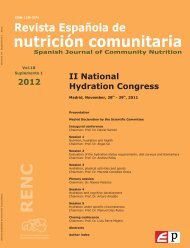ARCHIVOS DE MEDICINA DEL DEPORTEPALACIOS GIL-ANTUÑANO, Net al.have taken place. This not only diminishes physicalperformance but also increases the risk ofinjuries and can put the health and even the lifeof the sportsman at risk. That is why it is veryimportant to put together a strategy capable ofmaintaining an optimum level of body liquidwhile exercising (both in training sessions andin competitions).Dehydration affects sports performance because:– It <strong>de</strong>creases the obtainment of aerobic energyby the muscle.– Lactic acid cannot be transported far fromthe muscle.– It reduces strength.According to the proportion of liquids lost, thefollow alterations can occur 5-7 :– Loss of 2%: <strong>de</strong>crease in thermoregulatorycapacity.– Loss of 3%: <strong>de</strong>crease in resistance to exercise,cramp, dizziness, greater risk of sufferinglypothimia and rise in body temperature to38 <strong>de</strong>grees.– Loss of 4-6%: <strong>de</strong>crease in muscular strength,contractures, headaches and rise in bodytemperature to 39 <strong>de</strong>grees.– Loss of 7-8%: serious contractures, exhaustion,pins and needles, possible organic failure,heatstroke.– Loss of over 10%: entails serious risk to life.That is why, although there are individual characteristicsthat establish very marked differencesbetween sportspersons (environmental factors,prior acclimatisation, training state, body weight,ingestion of drugs, etc.), it can be said that thefirst advice that ought to be established as regardsfairly intensive physical exercise is the needto replace the liquids lost.The drop in weight produced by sweat evaporationis highly variable. One simple way of findingout how much water is lost in a physical activityis to weigh oneself before and after the exercise,as in exertions of un<strong>de</strong>r 3 hours, water loss frombreathing is relatively insignificant, comparedto that produced by sweating. If the sportsmanweighs himself un<strong>de</strong>r the same conditions forseveral days (when he gets up, for example), thevariations may reflect his state of hydration priorto the exertion and, when comparing the weightbefore and after the physical activity, the <strong>de</strong>greeof <strong>de</strong>hydration provoked by the exercise can beestablished 8,9 . Urine <strong>de</strong>nsity (examined by changesin colour) can also be a supplement for theabove observation 10 .ELECTROLYTE NEEDSBefore the liquid lost in the internal medium iseliminated in the form of sweat, its compositionis key to <strong>de</strong>termining the quantities of solutesthat have to be replaced. However, it has to beremembered that the range of electrolytes insweat is very wi<strong>de</strong> and varies according to the <strong>de</strong>greeof acclimatisation. The concentration of thesodium ion in sweat ranges from 10 to 70 mEq/L,that of the potassium ion from 3 to 15 mEq/L,that of the calcium ion from 0.3 to 2 mEq/L andthat clori<strong>de</strong> ion from 5 to 60 mEq/L 11 . Owingto the fact that acclimatisation improves thecapacity to reabsorb Na + , people adapted to theenvironmental conditions of the area have lowerNa + concentrations in their sweat (a reductionof over 50%).Electrolytes during exerciseReplacement of ions has a hierarchy based onthe clinical situation that can cause each oneto alter: the drop in blood sodium levels duringphysical exertion has led to highly serious situationsand even the <strong>de</strong>ath of the sportsman 12-15 .Hyponatremia associated with drinking wateronly in long-lasting exercises has been the causeof serious conditions (disorientation, confusionand even epileptic fits) 16 . During exertions of thiskind, the consumption of large quantities of pure246A M D
VOLUMEN XXV - N.º 126 - 2008CONSENSUS ON DRINKS FOR THE SPORTSMAN. COMPOSITION AND GUIDELINES OF REPLACEMENT OF LIQUIDSwater may lead to displacement of Na + from theextracellular medium to the intestine, causingan acceleration in the reduction of the plasmaticNa + . In fact, <strong>de</strong>aths from hyponatremic encephalopathyhave occurred linked with high waterconsumption (as happened in the 2002 Bostonmarathon).The sodium ion is, therefore, the only electrolytewhich, if ad<strong>de</strong>d to the beverages consumed duringexercise, provi<strong>de</strong>s physiological benefits. AnNa + concentration of 20 to 50 mmol/L (460-1150mg/L) stimulates the maximum arrival of waterand carbohydrates in the thin intestine and helpsmaintain the volume of extracellular liquid 1 .Potassium ion losses are much lower (4-8mmol/L) which, associated with the hyperpotasemiaobserved in intense physical exertion,makes their replacement less necessary than thatof the sodium ion, at least during the time theexecution of the exertion lasts, although it is advisableto inclu<strong>de</strong> it in beverages used to replacethe losses once the physical activity has en<strong>de</strong>d, aspotassium favours water retention in the intracellularspace, thereby helping to achieve a<strong>de</strong>quaterehydration 17,18 .Electrolytes after exerciseAlthough electrolytic replacement, after theexertion has en<strong>de</strong>d, <strong>de</strong>pends on a large numberof circumstances (duration, temperature andhumidity of the area, acclimatisation, etc.), somefundamental facts can mark the gui<strong>de</strong>lines:– The outcome of ingesting water only inan organism <strong>de</strong>hydrated by sweat losses(as happens after intense exercise and/orduring the course of it) is a rapid drip inplasmatic osmolality and sodium concentrationwhich, in turn, reduces the impulseto drink that stimulates diuresis, withpotentially serious consequences such ashyponatremia. Hence, rehydration afterphysical effort is not achieved a<strong>de</strong>quatelywith water alone 19 . The quantity of urineeliminated after physical effort is inverselyproportional to the sodium ingested. Thisis the only ion to have proved its efficacy inliquid replacement studies.– In exercise, during muscular contraction,there is a loss of intracellular K + , due tomuscular activity and, as a result, an increasein the plasmatic concentration of this cation;after exercise, the intracellular K + concentrationin the muscles is recovered and the plasmaticlevels of this ion rapidly return to theirbasal values. There is no evi<strong>de</strong>nce that thelosses of this ion, as a result of exercise, areimportant enough to affect the sportsman’shealth or performance 20 . In any case, it has tobe remembered that potassium helps achievea<strong>de</strong>quate rehydration (it optimises waterretention), so its inclusion in beverages usedafter the exercise is positive.CARBOHYDRATESAlthough hydration is the first step to take withrespect to the performance of physical exercise,other factors linked with the exertion itself mustbe consi<strong>de</strong>red. In this respect, it is known that theconcentration of glycogen in the liver and musclesused during the activity marks the capacity tomaintain a prolonged effort in aerobic sports 21 .In fact, training in sports of this kind consists,mainly, of getting the organism accustomed tousing fats to the maximum as a source of energy(through their oxidation) and of increasing glycogenreserves in the liver and muscles 22 . Glycogenstorage is limited (10-12% of the weight in theliver and 1-1.5% of the weight in the muscles).Glycogen savings can be achieved maintainingglycemia through the exogenous supply of glucose.If compared with the intake of water only, byadding carbohydrates to a solution, consuming itat a rate of 1 g/min, glucose oxidation in the liveris reduced by as much as 30% 23 . In this respect, itis <strong>de</strong>monstrated that the supply of carbohydratesin rehydration beverages during exertion improvesthe sportsman’s performance 24 .The quantity of carbohydrates to supply in thebeverage is marked by the following conditioningfactors:247A M D


